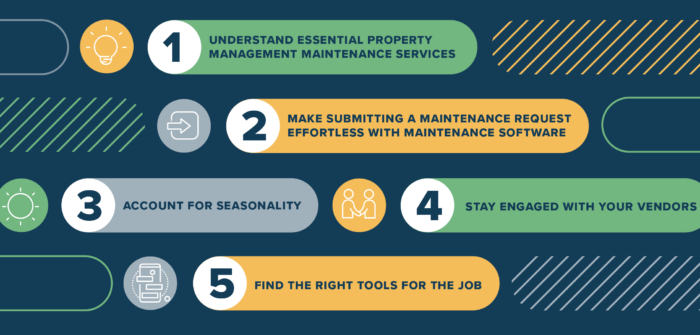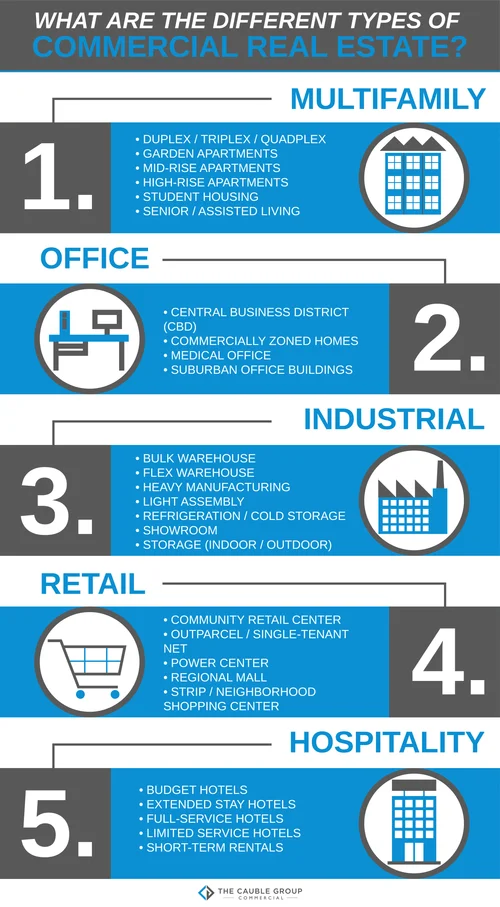Unlock the secrets to successful property management with these essential tips every property manager needs to know right now.

Image courtesy of George Becker via Pexels
Table of Contents
Property management is a vital aspect of ensuring that rental properties run smoothly and tenants are happy. Whether you’re a seasoned property manager or just starting out, it’s important to be equipped with the best strategies for managing rental properties effectively.
From handling tenant relations to overseeing property maintenance, property management encompasses a wide range of responsibilities that require a strategic approach. By adopting effective property management practices, you can create a positive living experience for tenants and protect the value of the properties you manage.
Understanding Your Role as a Property Manager
Being a property manager comes with a lot of responsibilities. You have to take care of the property, make sure tenants are happy, and handle all the logistics of renting out a space. Let’s dive into what it means to be a property manager and why it’s so important.
Key Responsibilities
As a property manager, your day-to-day tasks can vary. From showing potential tenants around the property to handling maintenance requests, you have a lot on your plate. You also need to make strategic decisions, like setting rental prices, ensuring timely rent collection, and keeping the property in good condition.
Importance of Good Management
Effective property management is crucial for both tenant satisfaction and the property’s value. When tenants are happy with how their needs are being met, they are more likely to stay long-term. Additionally, well-maintained properties can attract higher-quality tenants and ultimately increase the property’s overall value.
Tip: Know the Laws
Understanding the laws related to managing rental properties is crucial for property managers. These laws are designed to protect both tenants and property owners. Let’s delve deeper into why knowing the laws is essential for effective property management.
Lease Agreements
One important aspect of rental property management is the lease agreement. A lease agreement is a contract between the tenant and the landlord that outlines the terms and conditions of the rental arrangement. It is vital for property managers to understand and adhere to the laws governing lease agreements to ensure a smooth and legal tenancy.
Tenant Rights
Tenants have rights that are protected by law. Property managers must be aware of these rights to avoid any potential legal issues. Respecting tenant rights not only ensures compliance with the law but also fosters a positive landlord-tenant relationship, leading to tenant satisfaction and retention.
Tip #2: Maintain Open Communication
Effective communication is key to successful property management. As a property manager, it is crucial to stay connected with your tenants to ensure their needs are met and the property is well-maintained. By maintaining open lines of communication, you can address issues promptly, build trust with your tenants, and create a positive rental experience.

Image courtesy of www.buildium.com via Google Images
Communication Channels
There are various ways to communicate with tenants, and it’s important to utilize multiple channels to reach them effectively. One common method is through email, where you can send important updates, notices, and reminders. Phone calls are also an efficient way to address urgent matters or conduct regular check-ins with tenants.
Additionally, consider setting up a dedicated online portal where tenants can submit maintenance requests, pay rent securely, and access important documents. This centralized platform makes it convenient for tenants to communicate with you and ensures that information is easily accessible for both parties.
Regularly communicating with your tenants shows them that their concerns are heard and addressed promptly. It fosters a positive relationship and helps prevent misunderstandings or conflicts down the line. By maintaining open communication, you can create a harmonious rental environment and ensure effective property management.
Tip #3: Regular Property Maintenance
One essential aspect of being a great property manager is keeping the rental property in top-notch condition. This means regular property maintenance, which involves taking care of the property to prevent bigger problems down the road.
Preventative Maintenance
Preventative maintenance is like giving your rental property a regular check-up to catch any small issues before they turn into major problems. By fixing small leaks, inspecting the property for potential safety hazards, and ensuring that all appliances are in good working order, you can save yourself time, money, and headaches in the long run.
Tip #4: Organize Your Finances
Managing the financial aspects of property management is crucial for success. Let’s talk about how to keep your finances in order when managing rental properties.

Image courtesy of www.yourokcpropertymanager.com via Google Images
Rent Collection
One essential part of property management is collecting rent from tenants. Rent collection can be done through various methods, such as bank transfers, checks, or online payment platforms. It’s important to have a clear rent collection process in place to ensure timely payments and avoid any misunderstandings.
Budgeting for Repairs
Another important aspect of organizing your finances as a property manager is budgeting for repairs. Unexpected issues can arise with rental properties, so it’s essential to set aside a portion of the rental income for potential repairs. By having a repair budget in place, you can address maintenance issues promptly and keep your properties in top shape.
| Tips | Description |
|---|---|
| 1 | Establish clear communication with tenants |
| 2 | Maintain properties regularly |
| 3 | Keep detailed records of all transactions and communications |
| 4 | Stay up-to-date with local laws and regulations |
| 5 | Provide excellent customer service to tenants |
Tip: Hire Support if Needed
As a property manager, you may find yourself overwhelmed with the multitude of tasks involved in managing rental properties. Don’t be afraid to seek help when needed! Hiring a property management company or additional staff can be a game-changer in ensuring effective property management.
When to Hire Help
There are clear signs that indicate when it might be time to consider enlisting support for managing your properties. If you find yourself constantly struggling to keep up with maintenance tasks, dealing with tenant issues, or simply feeling overwhelmed by the workload, it may be time to bring in some reinforcements.
Choosing the Right Company
When selecting a property management company to assist you, it’s essential to consider a few key factors. Look for a company with a proven track record of success, positive reviews from other clients, and transparent communication. Additionally, ensure that they offer the services you need and align with your values and goals as a property manager.
Making Use of Technology
As a property manager, you can take advantage of modern technology to make your job easier and more efficient. By incorporating various software tools into your daily operations, you can streamline tasks and enhance your ability to provide effective property management.
Image courtesy of fitsmallbusiness.com via Google Images
Property Management Software
Property management software is designed to help you manage various aspects of rental properties with ease. These tools can assist you in tasks such as tracking rental payments, scheduling maintenance work, and communicating with tenants. By using property management software, you can stay organized and reduce the likelihood of errors or oversights in your management duties.
Dealing with Difficult Situations
As a property manager, you may encounter conflicts with tenants from time to time. It’s essential to approach these situations with a calm and professional demeanor. Listen to the tenant’s concerns attentively, and strive to find a mutually beneficial solution. Communication is key in resolving disputes, so make sure to keep an open and respectful dialogue throughout the process. By addressing conflicts promptly and effectively, you can maintain positive tenant relations and ensure a harmonious rental environment.
Emergency Preparedness
emergency situations can arise unexpectedly in property management, such as a burst pipe or a power outage. It’s crucial to have a contingency plan in place to handle these scenarios swiftly and efficiently. Consider creating an emergency contact list with essential numbers for maintenance, contractors, and emergency services. Conduct regular drills to familiarize yourself and your team with emergency procedures. By being prepared for unforeseen events, you can minimize damage, protect the safety of tenants, and maintain the overall well-being of the rental property.
Conclusion
In conclusion, being a property manager comes with a lot of responsibilities, but with the right knowledge and strategies, it can be a rewarding and successful career. By following the five tips discussed in this article, property managers can effectively manage rental properties and ensure tenant satisfaction while maintaining the property’s value.

Image courtesy of www.tylercauble.com via Google Images
Remember, knowing the laws, maintaining open communication, regular property maintenance, organizing finances, and seeking help when needed are all crucial components of effective property management. By staying informed and implementing these tips, property managers can navigate the challenges of rental management with confidence and professionalism.
FAQs
Why is it important to know the laws regarding rental management?
It is crucial for property managers to understand the laws related to rental management to ensure legal compliance and avoid potential disputes with tenants. By knowing the legal responsibilities and rights involved in managing rental properties, property managers can protect both themselves and their tenants from legal issues that may arise.
How often should property maintenance occur?
Property maintenance should occur regularly to upkeep the condition of the rental property and prevent larger problems from developing over time. Typically, property managers should schedule routine maintenance checks and fixes to ensure that the property is well-maintained and in good working order. By staying proactive with maintenance, property managers can protect the property’s value and keep tenants satisfied with their living conditions.
Idaho Poperty Management
